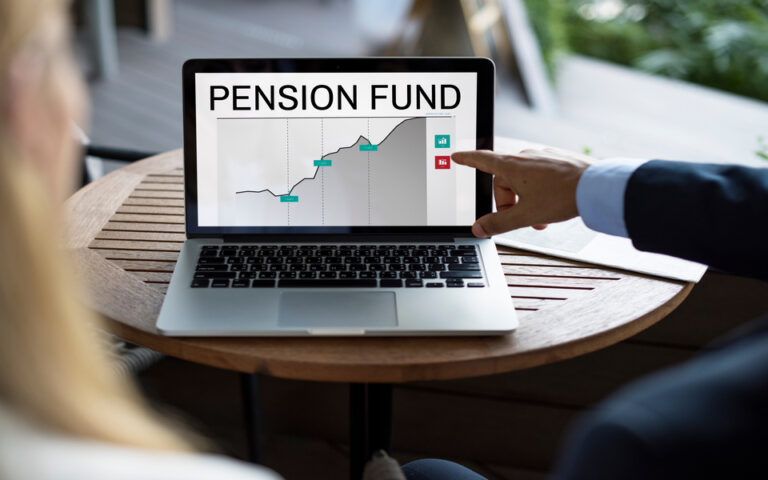Part 1: Shareholder activism and the climate crisis
One month into 2020 and it seems that climate change, and the role that big business and the financial sector must play in dealing with it, has already claimed more global news space than it did during the whole of 2019.
BlackRock, the world’s biggest asset manager, has finally succumbed to investor and activist pressure to take leadership on the climate crisis. The conversation at Davos was dominated by social and environmental challenges. In Australia, which less than a year ago voted in a party whose leader is an unabashed climate sceptic and coal industry defender, the incineration by wildfires of vast swathes of land and millions of animals has made it impossible to deny the reality of climate change.
For the first time in its 50-year history, the top five global risks in the World Economic Forum’s Global Risks Report are all environmental concerns: extreme weather, failure of climate change adaptation, major natural disasters, biodiversity loss, and human made damage. The risks are compiled based on “a survey which asks global experts and decision-makers to rank their top concerns for the next decade”. The 2020 survey was dominated by an “unprecedented confluence of climate and ecological breakdown”.
Have we finally reached a tipping point, where the world’s most powerful economic actors understand the extent of the climate and ecological challenges facing humanity, and are determined to take the action needed to address them?
Big commitments to shift the focus of the economy from pure profit maximisation to a more inclusive, sustainable way of doing business, like BlackRock’s announcement that it will begin exiting investments in thermal coal producers and vote against boards which are not showing progress on climate-risk disclosure and management, are very significant. But once the spotlight has faded, there will, inevitably, be a tendency to slip back into business as usual. Civil society and responsible investors must redouble their efforts, to keep the momentum going and ensure that action really does follow these headlines.
In 2019, Just Share worked with responsible investors to table South Africa’s first climate risk-related shareholder resolutions at Standard Bank and FirstRand, demanding better disclosure on climate risk and the release of policies that clearly set out these banks’ approach to the financing of fossil fuels. Shareholders at both banks voted for resolutions requiring the public release of fossil fuel-financing policies. FirstRand must adopt a comprehensive fossil fuel-financing policy before the end of this year. Standard Bank has published its coal-fired power policy, but it has not yet released its policy on coal mining, which it is required to do in terms of the resolution passed in May 2019.
In 2020, we will expand our focus on banks and fossil fuel financing; we are already seeing encouraging signs of proactive steps being taken by some banks on this front. However, South African financial institutions are still only talking about disclosure, and there is a baffling resistance amongst institutional investors even to this: the majority of both FirstRand and Standard Bank’s shareholders voted against resolutions which would have required the banks to provide assessments of their exposure to climate risk.
Disclosure is only the first step, and when it comes to the climate crisis, the demands for action are growing at an unprecedented pace. In the UK, shareholder activists recently tabled a resolution at Barclays Bank. If passed, the resolution will require the bank to phase out its provision of financial services to the energy sector and to bring its energy financing in line with the goals of the Paris Agreement. South African financial institutions, in comparison, are being let off rather lightly, but pressure continues to mount for them to take faster, more decisive action.
This pressure, and the associated risks of failing to act, will also ramp up against big fossil fuel companies like Sasol, other carbon intensive industries listed on the JSE, and their institutional investors. So far, only six South African companies or institutions are public supporters of the Recommendations of the Task Force on Climate-Related Financial Disclosures. There is also only one South African institutional investor signatory to the Climate Action 100+ investor initiative [fn1], despite the fact that Sasol and Eskom are on the initiatives’ list of focus companies. These initiatives are a showcase for corporate citizenship, and it is disappointing that so many South African companies are reluctant to take a public stand on climate issues.
In 2020, Just Share will challenge regulators and industry bodies – like the Financial Sector Conduct Authority (FSCA), the JSE, the Institute of Directors, BUSA and BLSA – to step out of the shadows and show leadership in respect of climate risk disclosure and the setting of meaningful greenhouse gas (GHG) emission reduction targets. It is particularly urgent for regulators to take the initiative and weigh in on the impasse that exists between Sasol and its shareholders due to the company’s refusal to table climate risk-related shareholder resolutions.
Shareholder activists will also be increasing their focus on the Government Employees Pension Fund (GEPF) and the Public Investment Corporation (PIC): given their size, influence in the South African economy, and the millions of members they represent, it is unfathomable that the trustees of the GEPF and the managers of the fund’s assets at the PIC are not leading the charge in responsible investment, including active ownership that drives South Africa towards a just transition to a low carbon economy.
Part 2 of Just Share’s outlook for 2020 will address our plans in relation to wage inequality and diversity and transformation.
- Investec Asset Management






